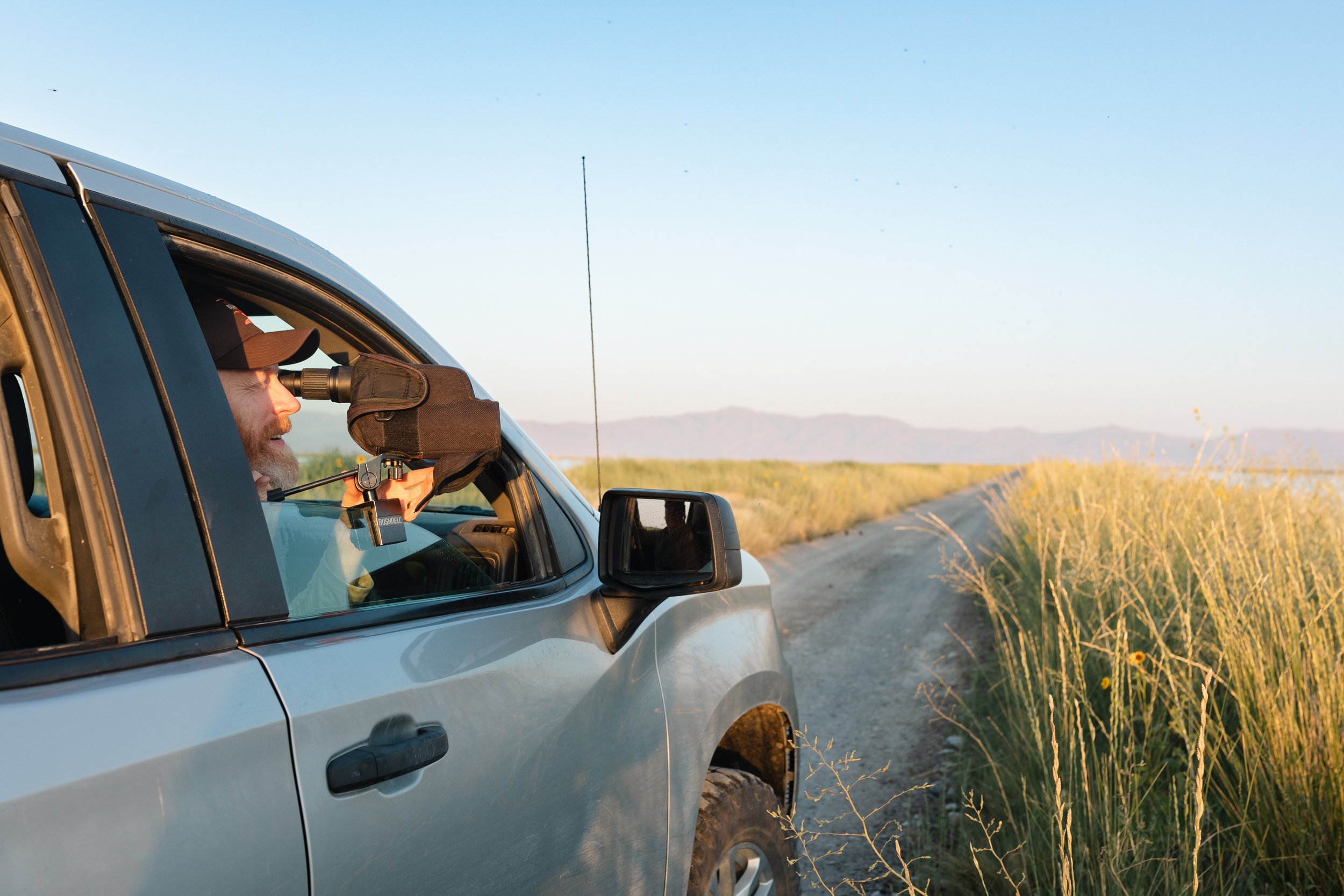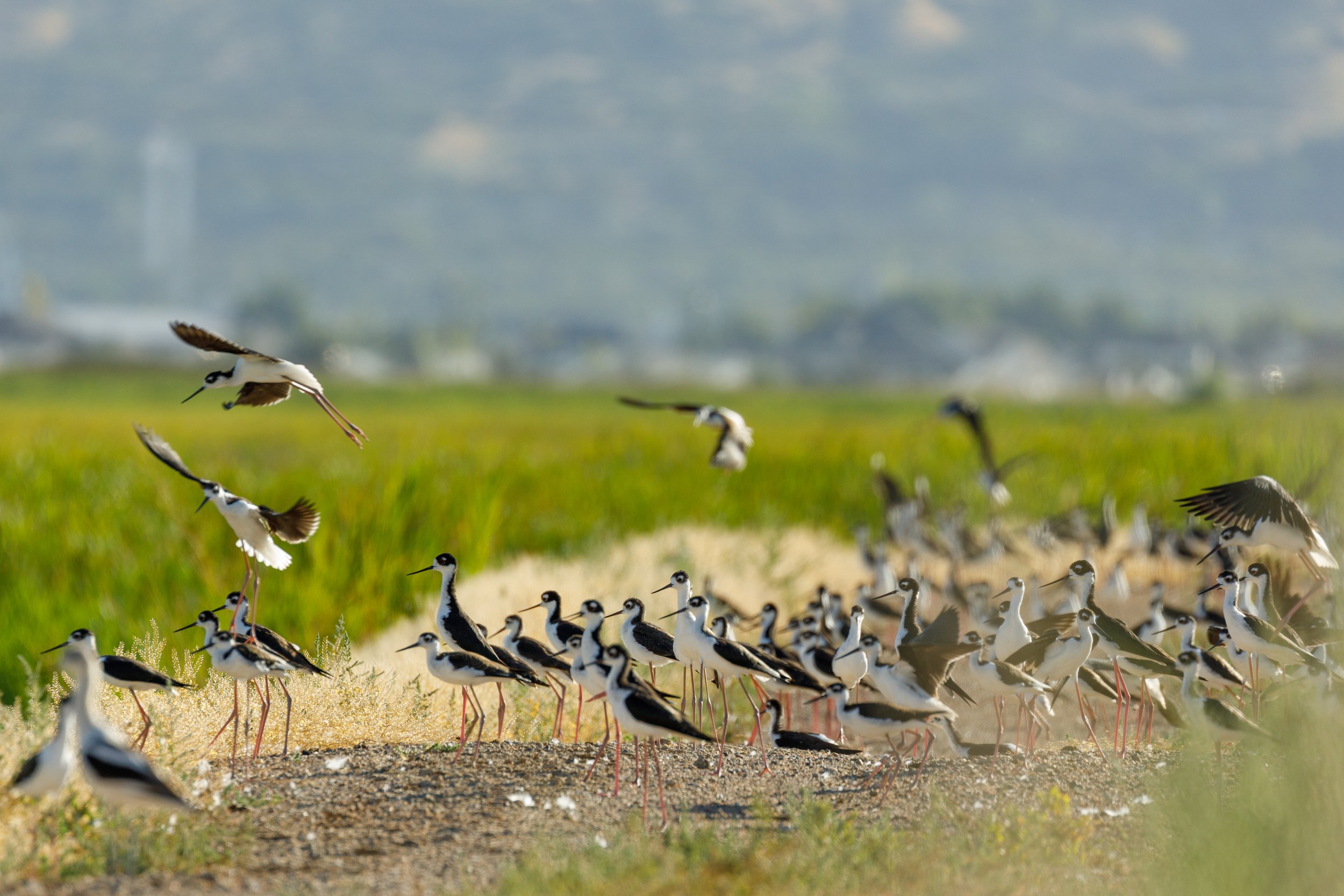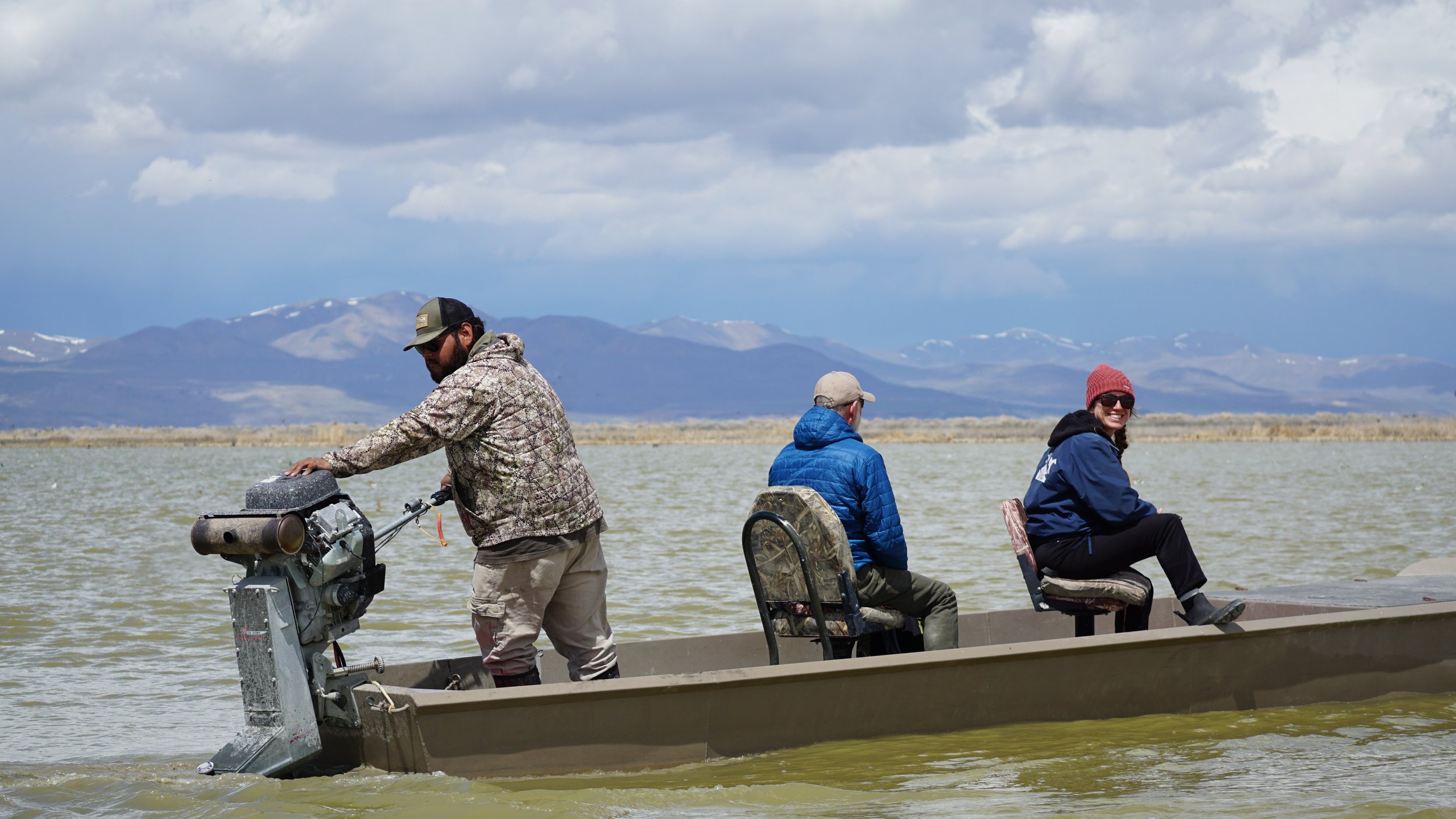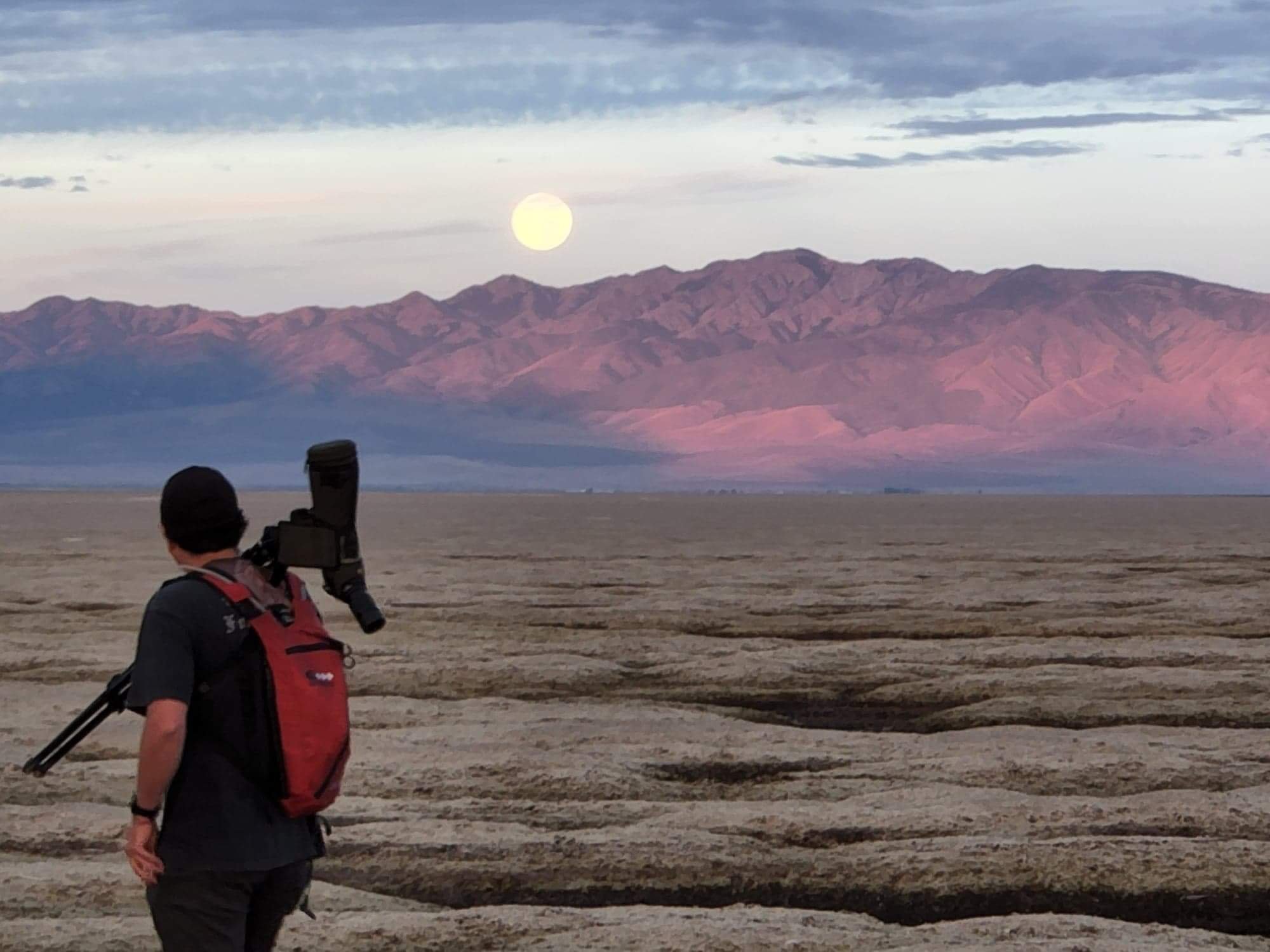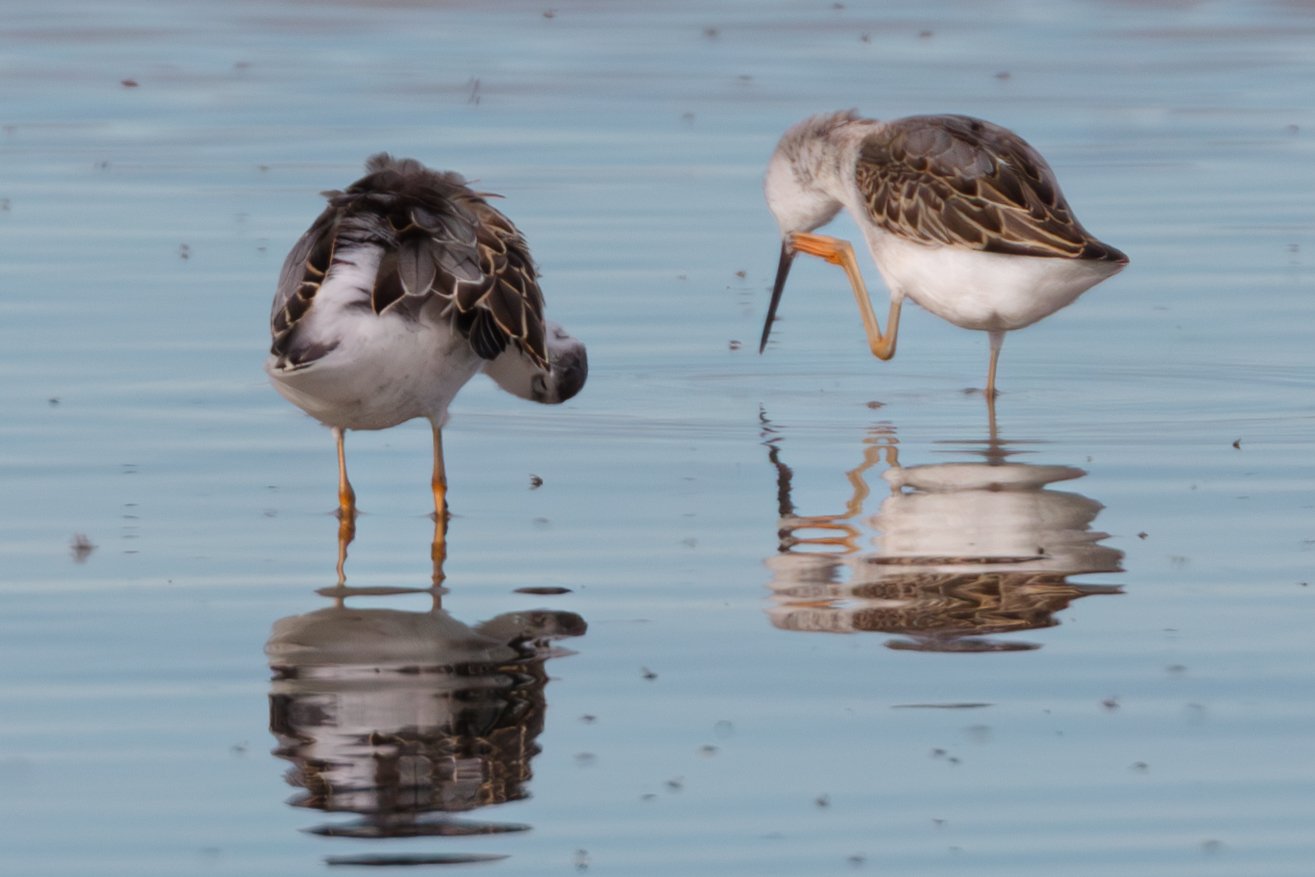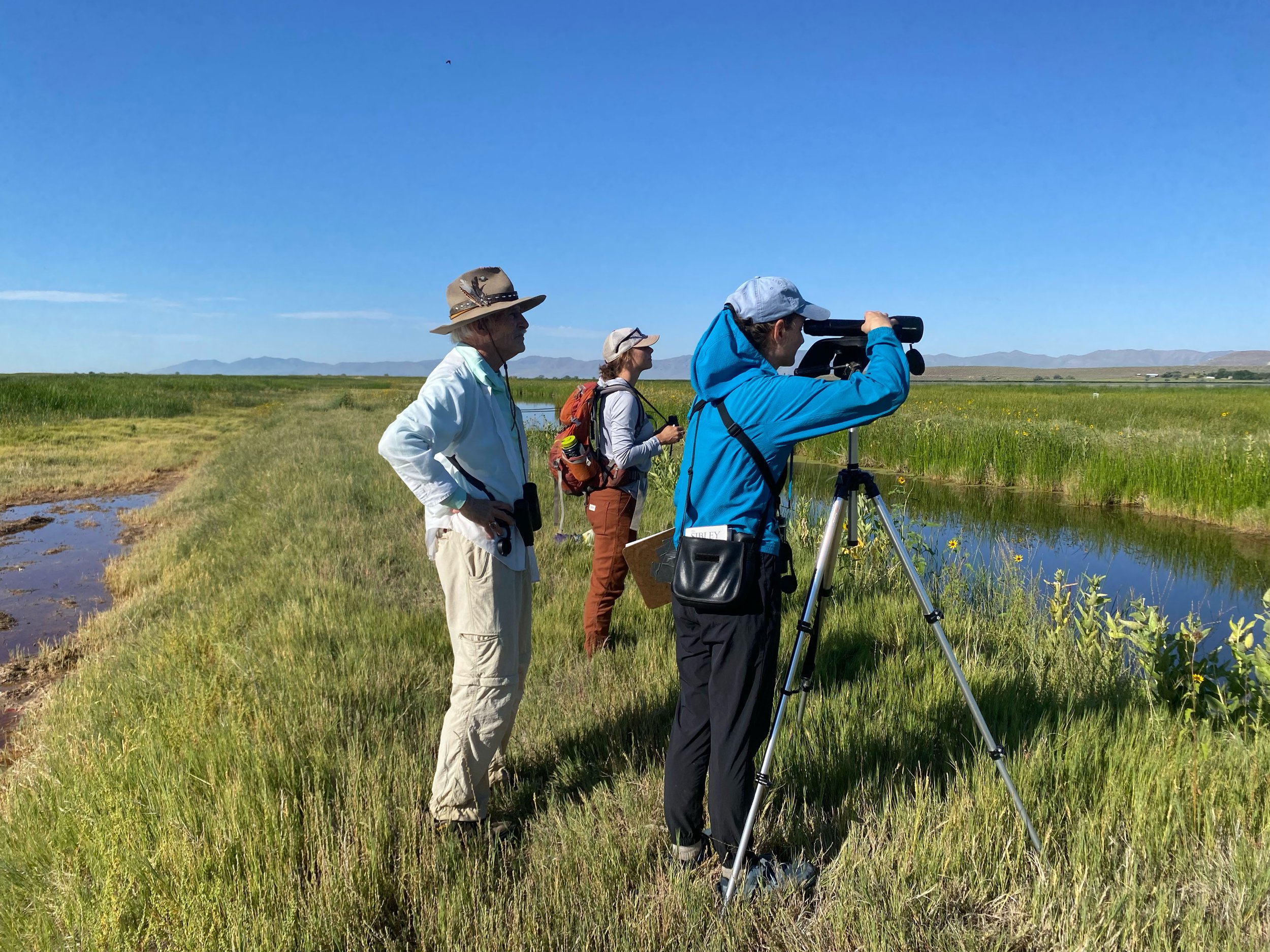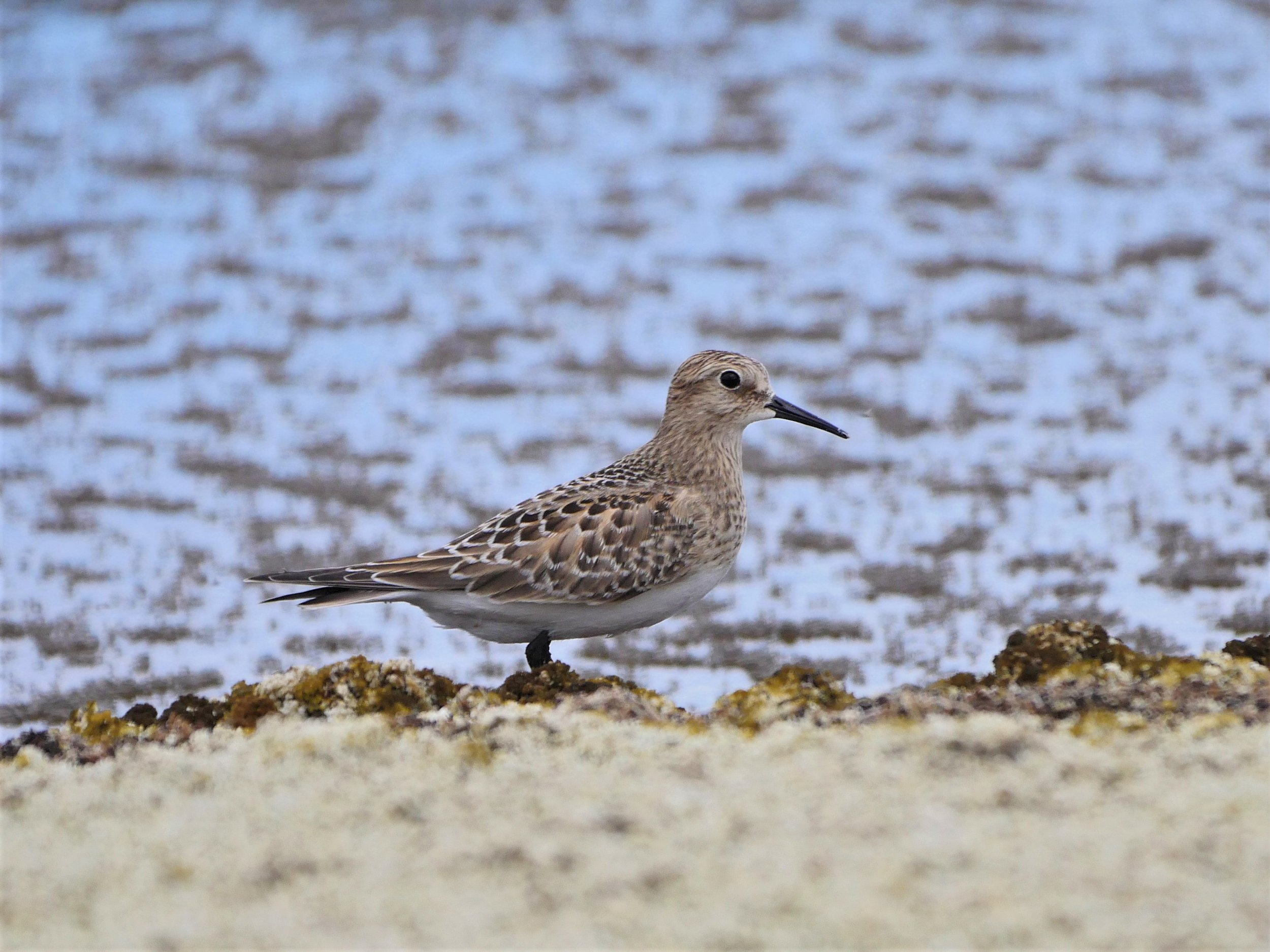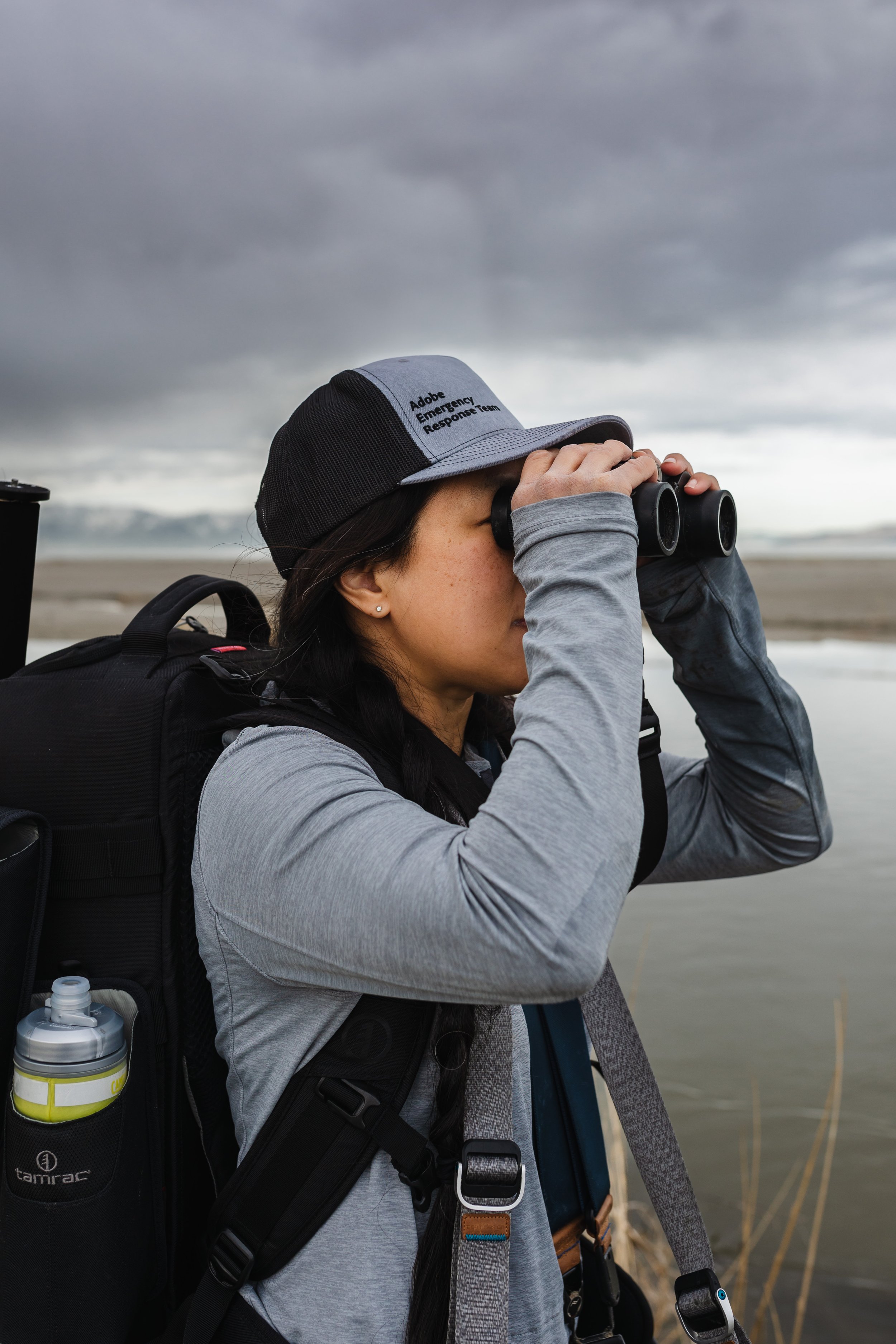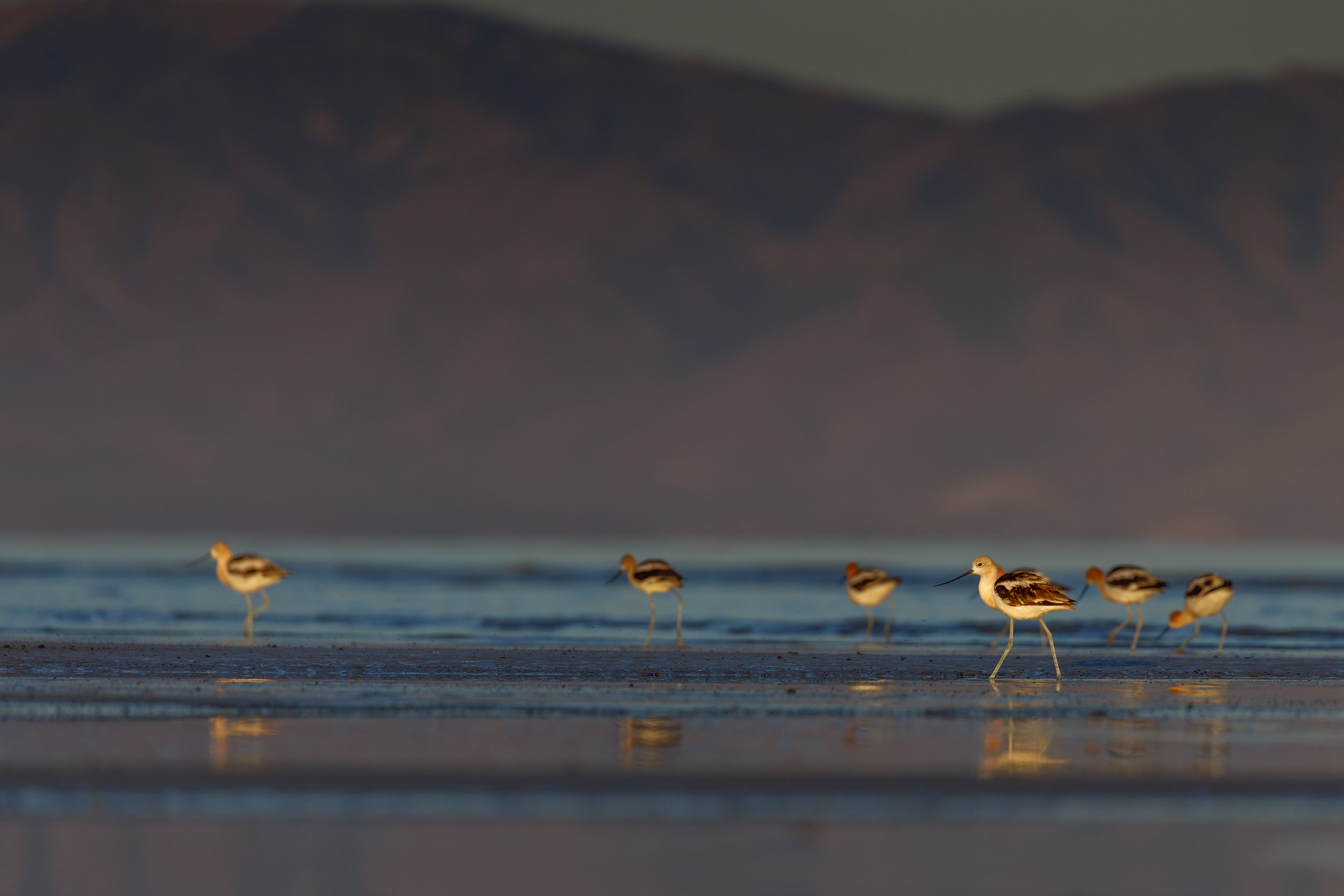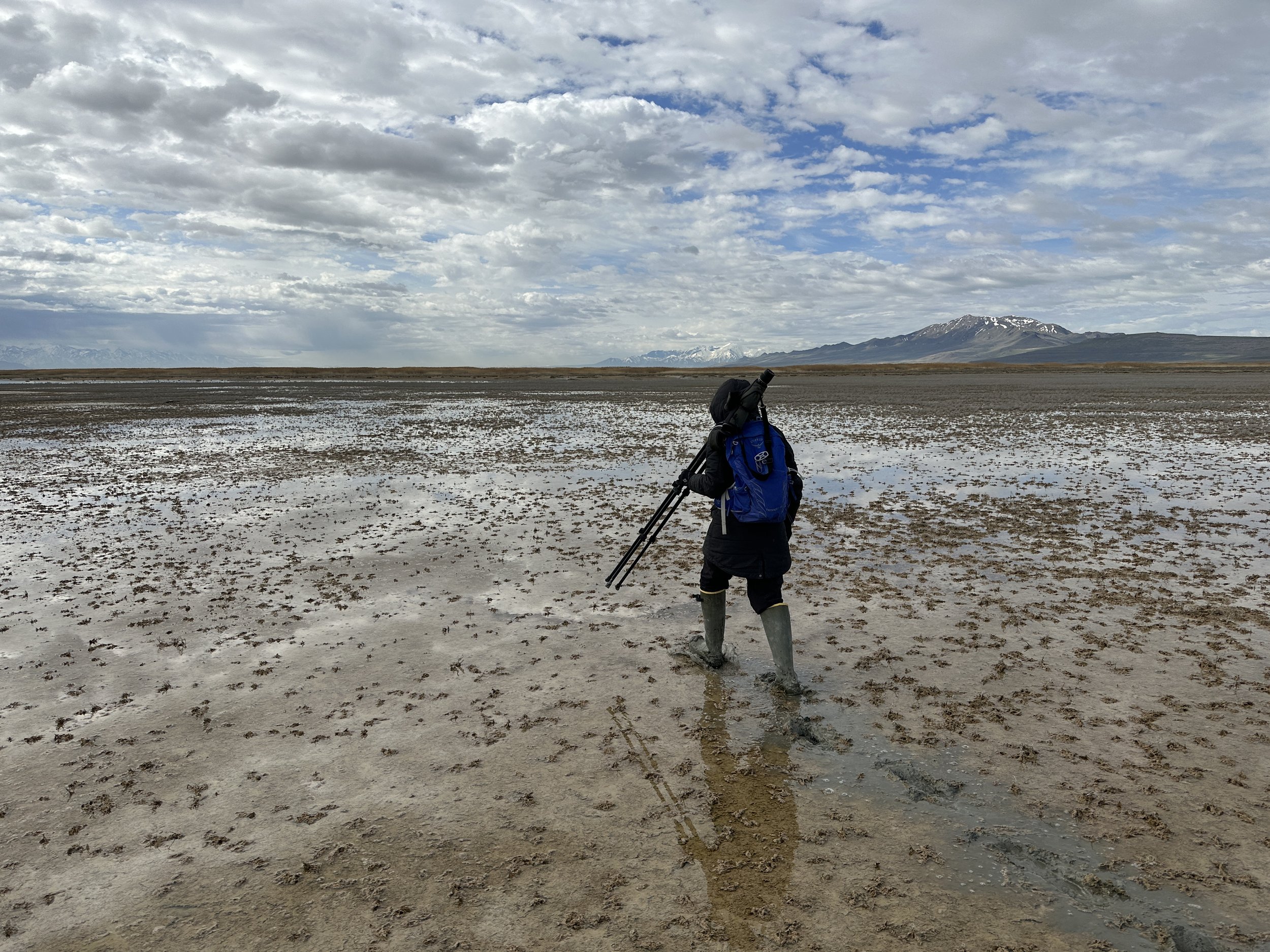The Spring 2024 Survey is Coming Up!
On Friday, April 26, 2024, over a hundred volunteers and partners will set out across the state’s wetlands to census Utah’s shorebirds. Thank you to everyone who has contributed to making these surveys happen!
Unable to join us in the field this year? Consider donating to sustain the future of these surveys and shorebird conservation.
Shorebirds represent important species diversity and are indicators of environmental health.
The Intermountain West is an oasis for our migratory shorebirds. A comprehensive shorebird survey was last completed across the region in 1989-1995, but much has changed in the past 25 years. This Shorebird Survey is replicating the census of the past so we can better manage shorebirds into the future.
The goal of the Intermountain West Shorebird Survey are to sustain shorebird populations. The survey objectives are:
Document the distribution and abundance of shorebirds at 189 survey areas during the spring and fall migrations for 3 years.
Use survey data to compare distribution and abundance with the historical shorebird survey from 1989-1995.
Identify factors that influence abundance of shorebirds.
We are recruiting volunteers to survey areas across Great Salt Lake, Fish Springs National Wildlife Refuge, Utah Lake, and the Amalga Barrens Sanctuary. Survey teams are comprised of professional biologists and volunteer birdwatchers.
We cannot accomplish our conservation goals without your generous donation of time and expertise. Thank you!
Photo by Janice Gardner.
What to Expect
-
Shorebird Surveyors should meet the following requirements. If you can’t, let us pair you with a team!
1. Have a passion for birds and time outdoors!
2. Commit to one survey day in the spring and one survey day in the fall, and allow some flexibility for scheduling around bad weather.
3. Consider committing to multiple years of the project.
4. Have reliable vehicle transportation.
5. Have their own binoculars and spotting scope.
6. Attend an annual online training and learn how to follow a detailed survey protocol.
7. Be safety conscience and cooperate with field partners.
8. Collect high quality data in the field.
9. Navigate to and around their survey area using GPS and maps.
10. Identify shorebirds in breeding and non-breeding plumage.
11. Enter bird counts into a database using a computer.
What We’ll Do: Count shorebirds & White-faced Ibis at survey areas across Utah. Each group has a team lead and will cover one survey area.
What to Wear: Appropriate clothing for the weather conditions, sun protection, muck boots or shoes that can get wet, and sunglasses.
What to Bring: Snacks/lunch, water bottle, sunscreen, bug spray.
Questions? Contact Project Coordinator Emm Clark.
Support shorebirds at Great Salt Lake and other wildlife in the West by donating today.
At a Glance
Signups: Sign-ups for the 2024 Spring Survey are now closed. Surveyors should have received a confirmation email with survey area & team details. Please reach out to Project Coordinator, Emm Clark, with any questions.
Survey Date: Friday, April 26, 2024. In the event of inclement weather, Saturday, April 27, 2024 is held for our backup date.
Training Required: Please find the virtual training video as well as additional volunteer resources below.
Age: Volunteers under 18 years old require a guardian’s signature and those under 15 years old must be accompanied by a parent or legal guardian.
Commitment Level: A virtual training and a day-long project outdoors.
Requirements: Work will be in and around wet areas, requiring walking over uneven surfaces (please contact us if you have questions about accessibility and potential accommodations). Also required is an ability or willingness to learn how to identify shorebirds by sight.
Important Stories
Read our recent blog post about why this work is important to a tiny bird that spins across the lake to get its food.
A Little Spinning Bird and the Wider World of Great Salt Lake Conservation
Red-necked phalarope photo ©Dorian Anderson
Volunteer Resources
Training Resources
Shorebird Identification Videos
Shorebird ID Cards & Slides
Books:


